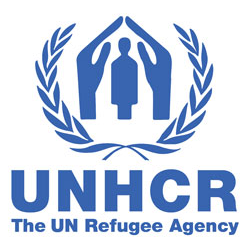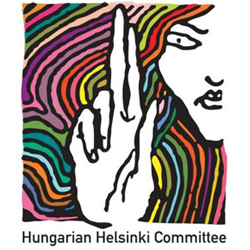Main Debate
What is the content and scope of the right to seek and receive/be granted asylum in the Americas from a human rights perspective and its relationship to refugee protection under the 1951 Convention and/its 1967 Protocol?
Main Points
- Relevance of the regional framework of human rights protection in ensuring the right to seek and receive/be granted asylum and the rights of refugees in the Americas
- The importance of the 1951 Convention and/its 1967 Protocol to define the scope and content of the right to seek and receive/be granted asylum in the Americas (art. 27 of the 1948 American Declaration of the Rights and Duties of Man in relation with articles 22.7 and 29 b) and 29 d) of the 1969 American Convention on Human Rights)
- New conceptualization of the right of asylum from a human rights perspective
Treaties
- Inter-American Convention against Terrorism, 3 June 2002 (arts. 11 and 12).
- Inter-American Convention on the Prevention, Punishment and Eradication of Violence against Women, 9 June 1994 (art. 9).űInter-American Convention to Prevent and Punish Torture, 9 December 1985, OAS Treaty Series No. 67, Art. 15.
- American Convention on Human Rights, 22 November 1969, OAS Treaty Series No. 36, UN Register 08/27/1979 No. 17955 (art. 22.7).
Soft Law
- American Declaration of the Rights and Duties of Man, 1948, Art. 27.
- Inter-American Court of Human Rights
- Inter-American Commission on Human Rights
Cases
Inter-American Court of Human Rights
Article 22.7
- Case Pacheco Tineo v. Bolivia. Judgment of 25 November 2013, Inter-American Court of Human Rights, parr.142-143, 154-155, and 197-198. (The Court refers to the right of asylum as enshrined in the regional human rights instruments, its relationship to refugee protection in particular, and the applicability of the minimum due process guarantees set forth in Articles 8 and 25 of the American Convention on Human Rights to refugee status determination procedures).
Article 8.2
- Case Tribunal Constitucional v. Peru. Judgment of 31 January, 2001, Inter-American Court of Human Rights, parr. 68-71. (The Court establishes that the minimum judicial guarantees should be respected in any state act related to the determination of rights of individuals and that they are not restricted to procedures of criminal nature).
Article 25
- Case Castillo Páez.Judgment of 27 November 1998, (according to the judgement, Peru has to indemnify for the material and moral harms caused, the family members of a disappeared person, including the father, the mother and the sister, who were forced to leave their country and seek asylum in The Netherlands).
- Advisory Opinion "Rights and Guarantees of Children in the Context of Migration and/or in Need of International Protection" OC-21/14, Inter-American Court of Human Rights (IACrtHR), 19 August 2014.
- UNHCR, UNHCR Letter to the Inter-American Court of Human Rights in the Framework of Request for an Advisory Opinion on Migrant Children presented by MERCOSUR, 17 February 2012.
Inter-American Commission on Human Rights
Individual Petitions
- Admissibility of the case Rumaldo Juan Pacheco Osco y Otros v. Bolivia, Report No. 53/04, 13 October 2004, (Petition No. 301/2002) (possible violation of the right to personal integrity, to personal liberty, to judicial guarantees, the rights of the child, the freedom of movement and residence with regard to refugees recognised in Chile wishing to reside in Bolivia). Case already decided by the Inter-American Court of Human Rights in November, 2013 (see above reference).
- Admissibility of the case 120 Cuban citizens and 8 Haitian citizens detained in Bahamas, Report No. 6/02, 3 April 2002, (Petition No. 12.071) (indications of the violation of Art. 27 of the American Declaration of the Rights and Duties of Man, concerning the right to seek and receive asylum).
- Merits of the case interdiction of Haiti, Report No. 51/96, 13 March 1997, (Case No. 10.675) (the Commission considered that the USA violated the right of Haitian citizens to seek and receive asylum when returning them to their country of origin despite that their life would be in danger there, after a summary proceeding of their asylum claims).
- Admissibility of the case Joseph v. Canada, Report No. 27/93, 6 October 1993, (Case No. 11.092) (following the analysis of existing domestic remedies concerning the recognition of refugee status, the application was declared inadmissible).
- Merits of the case Honduras, Report No. 5/87, 28 March 1987, (Case No. 9.619) (the State has the obligation to guarantee the situation, the security and the integrity of refugees hosted on its territory).
Annual Reports
- Annual Report (2003), 29 December 2003 (OEA/Ser.L/V/II.118) (obligation of States to ensure a reasonable possibility for asylum-seekers to substantiate their claim for refugee status and the reasons for which they fear being tortured if sent to a certain country, including the country of origin).
- Annual Report (1993), 11 February 1994 (OEA/Ser.L/V/ll.85) (analysis of the universal and regional legal framework applicable for refugees, internally displaced and stateless persons, specific analysis of the situation in Colombia, El Salvador, Guatemala, Haiti, Nicaragua and Peru).
Special Reports
- Report on Terrorism and Human Rights, 22 October 2002, (OEA/Ser.L/V/ll.116) (in the framework of anti-terrorist policies, the Commission analyses the situation of migrant workers, asylum-seekers, refugees and foreigners, particularly with regard to the right to liberty and security, to humane treatment, to due process and fair trial, and to non-discrimination).
- Recommendation on Asylum and International Crimes, 20 October 2000, (OEA/Ser./L/V/II.111, Doc. 20 Rev.) (recommendation for States to refrain from granting asylum to supposed perpetrators of international crimes).
Country Reports
- Report on Haiti, ’Failed Justice or Rule of Law?’ Challenges Ahead for Haiti and the International Community, 26 October 2005, (OEA/Ser.L/V/II.123) (analysis of the deportation of Haitian citizens from other countries and the preventive detention of foreigners).
Precautionary Measures
- Precautionary measures, 27 January 1999, in order that the Bahamas suspend the deportation of a Cuban family, the members of which asked for asylum and that this process should respect the relevant procedural guarantees.
- Precautionary measures, 14 August 1998, in order that the Bahamas refrain from deporting a group of 120 Cuban nationals who applied for refugee status, while the Commission is examining in detail their allegations of human rights violations.
- Precautionary measures, 16 January 1998, in order that Canada refrains from deporting a Sri Lankan national, recognised by Canada as refugee in 1991, while the Commission is investigating the human rights violations reported in the application.
General Assembly of the Organisation of American States
Resolutions
- Resolution AG/RES. 1971 (XXXIII-O/03), 2003. The protection of refugees, returnees, and stateless and internally displaced persons in the Americas.
- Resolution AG/RES. 1504 (XXVII-O/97), 1997. The situation of refugees, returnees, and internally displaced persons in the hemisphere.
- Resolution AG/RES. 838 (XVI-O/86), 1986. Inter-American action on behalf of refugees.
Readings
Core
- M. Manly, ‘La consagración del asilo como un derecho humano: Análisis comparativo de la Declaración Universal, la Declaración Americana y la Convención Americana sobre Derechos Humanos’, in El Asilo y la Protección Internacional de los Refugiados en América Latina: Análisis crítico del dualismo "asilo-refugio" a la luz del derecho internacional de los derechos humanos (UNHCR, Editorama, 1st edition, San Jose, Costa Rica, 2004, pp. 126-160).
- M.T. Gil-Bazo and M.B. Nogueira, ‘Asylum in the practice of Latin American and African states', New Issues in Refugee Research, Research Paper No. 249, January, 2013, pp. 1-15.
- UNHCR, ‘The Inter-American System for the protection of human rights and forced displacement’. Document prepared for the Joint Council of Europe/UNHCR Colloquium on the Role of Regional Human Rights Courts in Interpreting and Enforcing Legal Standards for the Protection of Forcibly Displaced Persons, held in Strasbourg, France, on 15-16 June, 2011 (pp. 143-149).
Extended
- J.C. Murillo, ‘La Protección internacional de los Refugiados en las Américas’, in XXXIII Inter-American Course of International Law, Inter-American Juridical Committee, OAS, Washington D.C., 2007.
- F. Galindo Vélez, ‘Asylum in Latin America. Use of the Regional Systems to Reinforce the United Nations System for the Protection of Refugee’, in Memoir of the Twentieth Anniversary of the Cartagena Declaration on Refugees 1984-2004 (San Jose: UNHCR, 2004), pp. 226–237, 240–245.
- M.C, Pulido and M. Blanchard, ‘La Comisión Interamericana de Derechos Humanos y sus mecanismos de protección aplicados a la situación de los refugiados, apátridas y solicitantes de asilo’, in El Asilo y la Protección Internacional de los Refugiados en America Latina: Análisis crítico del dualismo "asilo-refugio" a la luz del derecho internacional de los derechos humanos (UNHCR, Editorama, 1st edition, San Jose, Costa Rica, 2004, pp. 185-208).
 IV.2.1.1 The right to seek and receive/be granted asylum and the Rights of Refugees
IV.2.1.1 The right to seek and receive/be granted asylum and the Rights of Refugees 
 Treaties
Treaties # Name Size 1  Inter-American Convention on the Prevention, Punishment and Eradication of Violence against Women, 9 June 1994 (art. 9).
Inter-American Convention on the Prevention, Punishment and Eradication of Violence against Women, 9 June 1994 (art. 9).Empty 
 Cases
Cases



